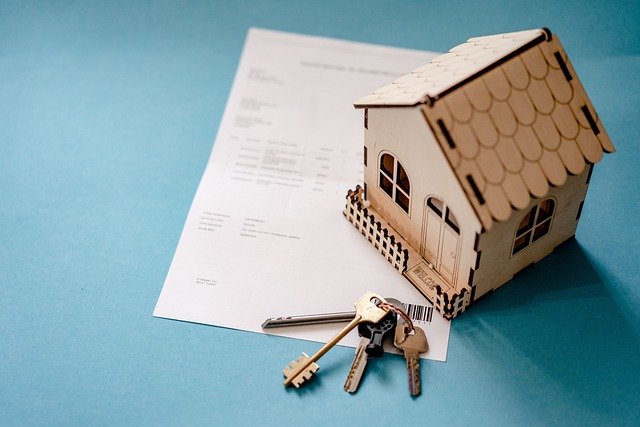Unlocking Homeownership: FHA Loans for Borrowers with a 500 Credit Score in 2026
Homeownership may seem out of reach for individuals with poor credit, but FHA loans offer a pathway even for those with credit scores as low as 500. These government-backed mortgages are designed to help borrowers who might not qualify for conventional financing. While stricter requirements apply at lower credit thresholds, understanding the qualification process, down payment expectations, and lender options can make the difference between renting indefinitely and owning your first home.

Federal Housing Administration loans have long served as a lifeline for Americans seeking homeownership despite financial challenges. Unlike conventional mortgages that typically require credit scores of 620 or higher, FHA loans accommodate borrowers with significantly lower scores, including those at the 500 mark. This flexibility stems from the FHA’s mission to expand homeownership opportunities across diverse economic backgrounds. However, navigating the approval process with a 500 credit score requires understanding specific requirements, preparing for higher costs, and identifying lenders willing to work with lower credit profiles.
Understanding FHA Loans with a 500 Credit Score
FHA loans are mortgages insured by the Federal Housing Administration, which protects lenders against borrower default. This insurance enables lenders to offer more lenient credit requirements than they would for conventional loans. For borrowers with a 500 credit score, FHA loans represent one of the few viable paths to homeownership. The program accepts credit scores as low as 500, though borrowers in this range face stricter down payment requirements. Specifically, those with scores between 500 and 579 must provide a minimum 10 percent down payment, compared to just 3.5 percent for borrowers with scores of 580 or above. Beyond credit scores, lenders evaluate debt-to-income ratios, employment history, and overall financial stability. The FHA typically requires a debt-to-income ratio below 43 percent, though some lenders may allow higher ratios with compensating factors such as significant cash reserves or a history of responsible rent payments.
Bad Credit FHA Mortgage Options
Borrowers with poor credit have several FHA mortgage options available, each with distinct features. The most common is the FHA 203(b) loan, the standard purchase mortgage that allows financing for single-family homes, townhouses, and approved condominiums. For those purchasing fixer-uppers, the FHA 203(k) rehabilitation loan combines purchase and renovation costs into a single mortgage, enabling buyers to invest in properties needing repairs. The FHA also offers the Energy Efficient Mortgage program, which finances energy-saving improvements alongside the home purchase. Each option maintains the same minimum credit score requirements, but the 10 percent down payment rule applies universally for scores below 580. Borrowers should also prepare for mandatory mortgage insurance premiums, which include an upfront payment of 1.75 percent of the loan amount and annual premiums ranging from 0.45 to 1.05 percent depending on loan terms and down payment size.
How to Qualify for FHA Loans with a 500 Score
Qualifying for an FHA loan with a 500 credit score demands thorough preparation and documentation. First, borrowers must demonstrate two years of steady employment or income, with recent pay stubs, tax returns, and bank statements readily available. Lenders scrutinize recent financial behavior, so addressing outstanding collections, charge-offs, or judgments strengthens applications. While the FHA does not require these debts to be paid off before closing, resolving them can improve approval odds. Bankruptcy and foreclosure histories also matter. Borrowers must wait at least two years after a Chapter 7 bankruptcy discharge and one year into a Chapter 13 repayment plan. Foreclosures require a three-year waiting period. Additionally, applicants should avoid new credit inquiries or significant purchases before applying, as these can negatively impact approval chances. Working with a housing counselor approved by the Department of Housing and Urban Development can provide valuable guidance through the qualification process, and some lenders may require counseling for borrowers with credit scores below 580.
FHA Mortgage Approval with Poor Credit
Securing approval with poor credit involves understanding lender overlays, which are additional requirements beyond FHA minimums. While the FHA sets baseline standards, individual lenders often impose stricter criteria to manage risk. Some lenders may decline applications from borrowers with scores below 580, while others specialize in working with challenged credit profiles. Approval likelihood increases when borrowers demonstrate compensating factors such as substantial savings, minimal debt obligations, or a strong history of on-time rent and utility payments. Providing a larger down payment than the 10 percent minimum can also strengthen applications. Documentation is critical—incomplete or inconsistent paperwork frequently leads to delays or denials. Borrowers should obtain pre-approval before house hunting, which involves a comprehensive review of financial documents and credit history. Pre-approval not only clarifies budget parameters but also signals to sellers that the buyer is a serious, qualified candidate.
FHA Lenders for Low Credit Scores
Not all mortgage lenders accept FHA applications from borrowers with 500 credit scores, making lender selection crucial. Several financial institutions have established reputations for working with lower credit profiles. Below is a comparison of lenders known to accommodate borrowers with challenging credit histories.
| Lender Name | Minimum Credit Score | Key Features |
|---|---|---|
| Carrington Mortgage Services | 500 | Specializes in non-traditional credit, flexible underwriting |
| FHA.com | 500 | Online platform connecting borrowers with FHA-approved lenders |
| Mortgage Research Center | 500 | Network of lenders with varying credit requirements |
| Local Credit Unions | Varies (often 580+) | Relationship-based lending, may consider special circumstances |
| Community Banks | Varies (often 580+) | Personalized service, local market expertise |
Prices, rates, or cost estimates mentioned in this article are based on the latest available information but may change over time. Independent research is advised before making financial decisions.
When selecting a lender, borrowers should compare interest rates, closing costs, and customer service reputations. Interest rates for borrowers with 500 credit scores typically run 0.5 to 1.5 percentage points higher than rates offered to those with excellent credit. On a 200,000 dollar loan, this difference can translate to tens of thousands of dollars over the life of the mortgage. Shopping among multiple lenders and obtaining Loan Estimates allows for meaningful cost comparisons. Borrowers should also inquire about lender-paid mortgage insurance options and down payment assistance programs, which can reduce upfront costs.
Improving Your Approval Chances
While FHA loans accommodate low credit scores, taking steps to improve creditworthiness before applying can yield better terms and lower costs. Paying down existing debts reduces debt-to-income ratios and demonstrates financial responsibility. Disputing inaccuracies on credit reports can quickly boost scores if errors are corrected. Establishing a pattern of on-time payments for at least six to twelve months before applying shows lenders that past credit issues have been addressed. Saving for a larger down payment not only reduces loan amounts but also signals financial discipline. Some borrowers benefit from waiting several months to improve their credit profiles, potentially qualifying for the 3.5 percent down payment option available at 580 or above. However, for those needing immediate housing solutions, proceeding with a 500 score remains viable with proper preparation and realistic expectations about costs and terms.
FHA loans provide a realistic path to homeownership for borrowers with 500 credit scores, though the journey requires diligence, patience, and careful financial planning. By understanding program requirements, identifying accommodating lenders, and preparing thorough documentation, even those with significant credit challenges can achieve the goal of owning a home. The key lies in realistic expectations, commitment to meeting lender standards, and willingness to accept higher initial costs in exchange for the opportunity to build equity and establish a foundation for long-term financial stability.




